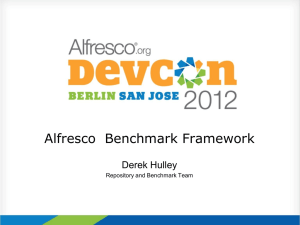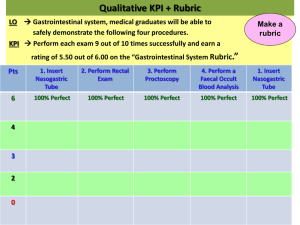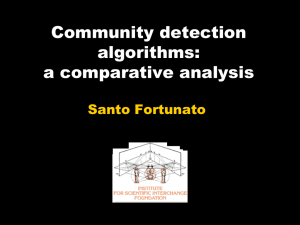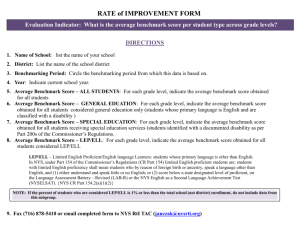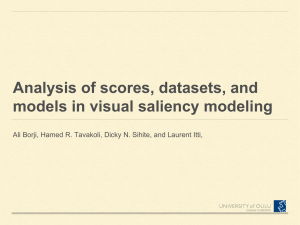ppt
advertisement
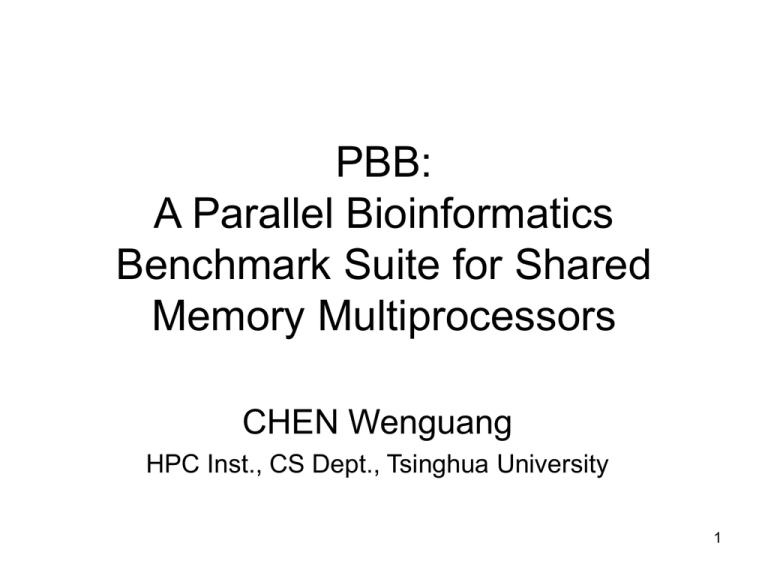
PBB: A Parallel Bioinformatics Benchmark Suite for Shared Memory Multiprocessors CHEN Wenguang HPC Inst., CS Dept., Tsinghua University 1 Outlines • • • • • Motivation Benchmark selection & construction Benchmark characteristics Performance results Conclusions, Q&A 2 Motivation • Widely use of bioinformatics applications • The trend of multi-core => There should be a parallel bioinfo. benchmark • SPEC CPU2000 may not match the characteristics of bioinformatics workloads well • Existing bioinformatics benchmark are not satisfactory => We need a new one 3 Existing Bioinformatics Benchmarks: BioBench: does not cover some important domains no parallel program BioPerf: includes only one parallel benchmark BioParallel: our previous work, includes 5 parallel application 4 PBB benchmark suite: Being more complete 7 applications covering 7 of the most important domains of bioinfo. Keeping pace with the changing world all the applications are parallelized 5 Benchmark Selection & Construction 1. Identify the most important application domains 2. Choose representative applications for each domain most popular, most advanced 3. Benchmark optimization & parallelization 6 The 7 applications: 1. Pairwise sequence alignment: BLAST-P 2. Global alignment: PLSA 3. Multiple sequences alignment: MUSCLE 4. Protein 3D structure prediction: Rosetta 5. Phylogenetic tree reconstruction: SEMPHY 6. Gene regulatory network learning: ModuleNet 7. Pattern study of Single Nucleotide Polymorphisms: SNP 7 Benchmark Characteristics Systems Used: Workload analysis is performed on QP001 8 Instruction profile: Non-egligible FP Higher L/S 9 CPI Low CPI 8P means QP001 with HT enabled 10 FSB bandwidth utilization Low utilization 11 Performance Results Benchmark scores: ri PBB _ Score 6 1i 6 100 mi ri mi : time used to run application i on the reference system : time used to run application i on the tested system Rosetta is excluded for it produces random results 12 Scores of PBB 13 Parallel speedup Tested on Unisys-ES700 with 16 Xeon 14 Hyper Threading Effects 15 Conclusions Workload characteristics: 1. High percentage of load/store instructions 2. Non-negligible floating point instructions, but still significantly lower than SPECCPU 2000FP 3. Low CPI 4. Low memory bandwidth demand 16 Thanks Any questions? 17



